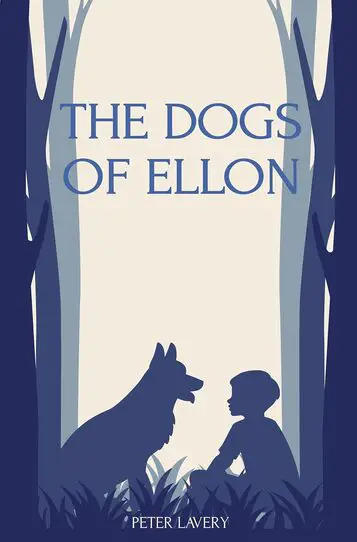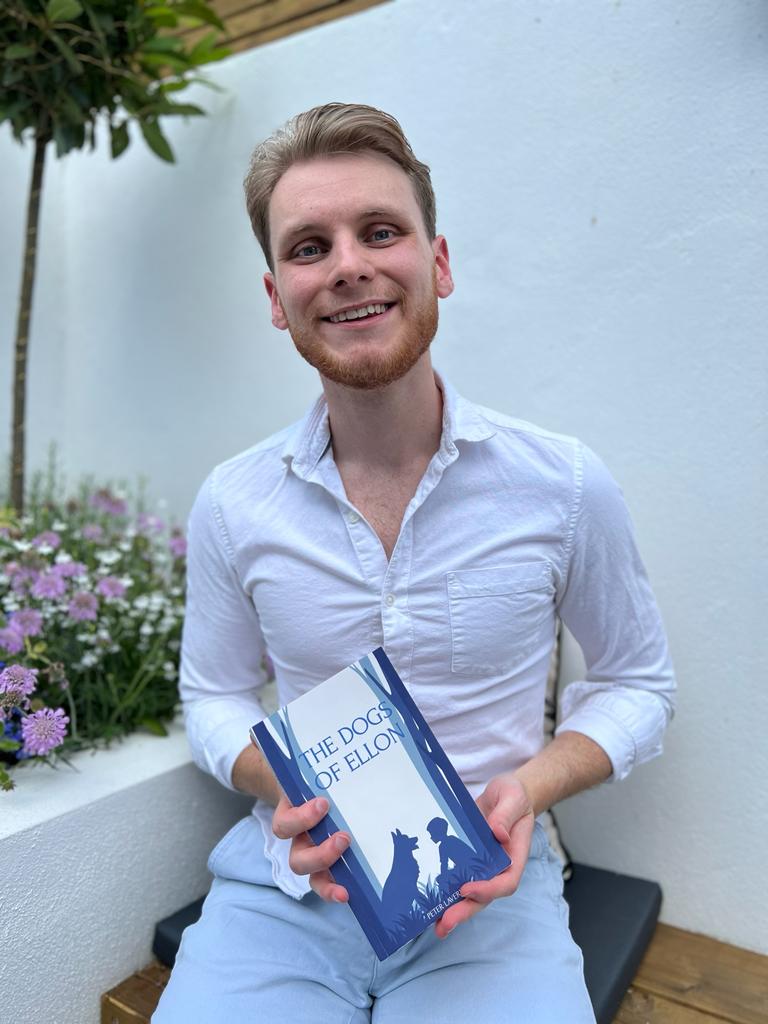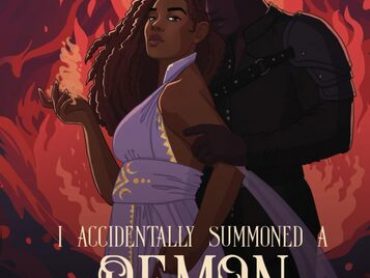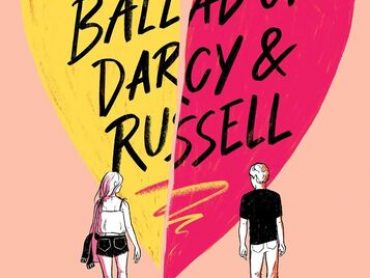Peter Lavery is the author of The Dogs of Ellon. The Dogs of Ellon follows Kace, a twelve-year-old boy, who discovers and befriends a dog. The novel explores friendship, secrets, fear of the unknown, and father-son relationships. YEM was able to speak with Peter about his writing process, balancing writing and filmmaking, and writing a coming-of-age novel.
Young Entertainment Mag: When did you first know that you wanted to be a writer?
Peter Lavery: The answer should be that during my school years, while in English class, when the teacher assigned a creative writing exercise for homework, and the rest of the class groaned in response, my eyes widened with excitement. That would be the romantic answer, but truthfully, it took me a few more years to realise my true passion. It wasn’t until my early twenties, when I enrolled in a screenwriting evening course, that I once again experienced the same feeling I had in my teenage years. It was then that I finally understood that I wanted to pursue this writing thing.
YEM: Where did the inspiration for The Dogs of Ellon come from?
Peter: I grew up in a small town in Ireland where being different meant being known, for better or worse. I wanted to write a simple story about a small-town boy questioning his community’s beliefs and exploring the unknown.
That materialised into a premise where, in the small town of Ellon, where all dogs are banned for being evil creatures, our 12-year-old Kace befriends one in the forest and begins questioning everything he thought he knew.
YEM: Does being a filmmaker benefit you in your writing?
Peter: The core principles of storytelling remain the same whether I’m writing a screenplay or a novel. So, doing both as my full-time job only helps the other – Also, having the flexibility to expand on a more complex idea for a book, as opposed to limiting myself to a 100-page screenplay, results in a higher writing output. If a concept is good but too short for a book, I’ll write it as a script, and vice versa. My ideas constantly get tagged with the phrase; is this a film or a book?
YEM: What are some similarities between being a filmmaker and a writer?
Peter: Story. Be it a film or book, the truly most important thing for me is the story. What am I telling and why? The story drives the characters that can be related to or empathised with. The story engages the reader/viewer. The story is the vehicle to deliver the themes and messages. The story gives one the opportunity to hang the flowery prose or pretty cinematography off of.
When writing a script or directing a film, the story is the priority, and the same applies to writing a book.
YEM: What is your writing process like?
Peter: Write whatever it takes to get that first draft down. Just keep writing even (and especially) when it’s rubbish.
Hell, for a writer, is an unfinished story being edited instead of written.
I’m absolutely guilty of this. When I hit a wall, it’s so tempting to go back and make the previous words better, instead of pushing through and continuing the story.
Editing a first draft is procrastination.
Start the process by putting down the story on the page, as the first draft is the most important even if it feels overwhelming at times.
Promise that no one will read your first draft. Write for yourself, not others. Easier said than done, I know.
YEM: How do you balance writing and filmmaking?
Peter: Filmmaking is collaboration and entrepreneurship. With TDOE, it was just me and my editor, whereas many hands make a film. There are script editors, producers, cinematographers, production designers, editors, financiers, sound teams, lighting teams, and many many more. It’s a collaborative effort where everyone contributes their individual skills to bring a story to life. My role as a director is to lead those talented people in a specific direction. But I am an introvert, so writing novels is my way of relaxing and being alone. I typically spend an entire day working on a film with my producer and many other creatives, and then in the evening, I usually spend my downtime writing a novel. Although it may not seem relaxing to most, writing and storytelling are my career, so it’s important to make time for ‘writing play time’ amidst my workload.
YEM: What do you hope your readers take away from The Dogs of Ellon?
Peter: I have always struggled with anxiety, so it was only natural for me to write a story about a young boy who overcomes his fears and discovers more about himself in the process. I was feeling nervous about publishing my book. Although I had been working on it for many months, it surprised my friends and family. However, I knew I had to do it regardless of my fear. I had to overcome it and take the leap of faith. I want readers to experience Kace’s fears and anxieties through my writing and perhaps encourage them to confront their own fears. A grandiose desire, but I never want to indulge in the thought that my writing can change someone’s life. However, if it can encourage them to do something they fear, even for a moment, that’s a success in a book about overcoming one’s fears written by an author who feared putting it out into the world.
YEM: What advice do you have for someone who wants to be a writer one day?
Peter: Writing is bloody hard. You will experience a roller coaster of emotions when writing, from self- doubt to pride. You’ll hate it and love it simultaneously, you’ll write fast some days, and slow others. You’ll have endless ideas and then none.
Every day is different, mental resilience is the key to finishing a piece of writing.
Writing is similar to being an athlete. Just as an athlete spends most of their time preparing their body to be in top shape to perform their craft, a writer must hone their skills and craft every day. And do everything around the actual craft to be in the best shape possible. Be the best version of yourself around the writing to churn out your best work. I find that certain habits really improve my writing. For example, I make sure to exercise every day by either swimming or going to the gym. I also meditate daily, do yoga and try to eat a healthy diet whenever possible. My sleep schedule is meticulous and I avoid drinking alcohol during the week, and I no longer smoke or use drugs.
It all sounds like pretentious self-help rubbish, but it helps me be the best writer I can be.
A serious athlete leaves training, goes home, eats right, rests and sleeps.
A serious writer should do the same.
YEM: Is there a writer that inspires you?
Peter: An obvious one is Mr Shakespeare himself, of course.
I used to hate his writing in school, and still, I don’t understand most of it. But to tell stories the way he did and live on in this way is incredible.
I have a film script, ‘All That Glitters’, which is a coming-of-age magical realism story about a teenage boy who enlists the ghost of Shakespeare to help him land the role of Romeo in the school play and win over his Juliet.
The story was incredibly fun to write, with the first draft coming out after just three days of writing. The way he understood human emotion was far beyond his time. If there is a feeling, there is a line from Shakespeare to summarise it better than we ever could.
As always, Shakespeare said it best.
YEM: What made you want to write a coming-of-age novel?
Peter: I love writing coming-of-age stories. They have the potential to be so very important to the right person.
During one’s coming of age, a lot happens. It’s a time when emotions are heightened, complexities are explored, and the mundane becomes absurd.
In my script ‘All That Glitters’ I went big with this by having the eccentric ghost of Shakespeare represent the theatre of a teenager’s world; the complexities of crushes, friendships, social hierarchies, etc. Sometimes, things that seem so immense in the present moment can be put into perspective later on, much like the stakes of a Shakespearean play.
YEM: What is a scene or quote from The Dogs of Ellon that is your favorite?
Peter: (Spoilers) At the end of the book, Elex, the dog, is put on trial by the town. During the trial, the prosecuting lawyers depict him as a vicious and cruel beast that poses a threat to the townspeople of Ellon. However, a heart-warming incident occurs when a small butterfly flies into the courtroom and lands on the dog’s nose, causing him to sneeze and the stern courtroom to laugh. This moment marks the first sign of empathy towards the animal.
I enjoy this little moment because it represents the sillyness of Elex, contrasting with the lawyer’s fear-driven portrayal. I hope it serves to convey the theme that fear of the unknown can be blinding.
Any dog owner knows how silly it is when they sneeze.
YEM: What do you have planned for in the future for your writing?
Peter: I’m doing the final edits for the screenplay of ‘All That Glitters’ with the aim to film and direct it in Summer 2024.
I’m also halfway through the first draft of a new novel, a story about two teenagers seeking solace in music.
The story takes place in modern-day London as opposed to a fictional fantastical time like TDOE.
It has been challenging to stay grounded despite my impulse to delve into the realm of magical realism, but I find the challenge exciting.
After finishing this draft, I have another exciting idea, but I want to prioritize completing this second novel and getting the film started first.
It is important to stick to one idea and work on executing it, as ideas tend to come and go. When the next idea comes, though, I’m sure I’ll ask myself if it’s a film or a book!





